No products in the cart.

Nigerians who were of age in the ‘80s and ‘90s would remember vividly the now extinct One Naira note and later coin, which featured a man with a trademark moustache and a bow tie with a foreign name “Herbert Macaulay”. As a young child growing up, I never knew he was a Nigerian nor did I know he was a Yoruba man – born and bred in Lagos. Macaulay was not just a Yoruba man; he had blue blood as well. That is, he was of the aristocracy with relations to an Alaafin of Oyo through his maternal grandfather, Bishop Samuel Ajayi Crowther.
Well, Herbert Macaulay had his negative side too as we shall see in the course of this article. Nevertheless, he died a hero leaving an indelible mark in the annals of Nigerian history as was his great-granddaughter, Dr. Stella Ameyo Adadevoh, who died of the Ebola disease and saved the nation from an impending scourge of an Ebola epidemic in July 2014.
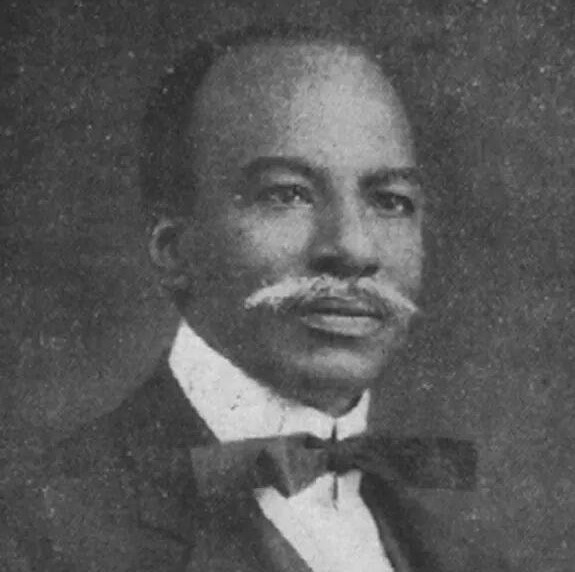
Did you know that Macaulay became Nigeria’s first certified civil engineer, surveyor, and architect on December 5, 1893? Did you know he was a musician? A great violinist for that matter? Did you also know he was an ex-convict? Yea, he was also a sexually active man, fathering many children with different women. Did you know his last words? Well, don’t let me keep you guessing. Join me as we explore the life of this great man also known as the “Father of Nigerian Nationalism”.
Contents
Who was Herbert Macaulay?
1. Herbert Heelas Samuel Badmus Olayinka Macaulay was born on Monday, November 14, 1864, six days after Republican President Abraham Lincoln defeated Democrat General George B. McClellan in the United States Presidential election to serve a second term in the White House and also the year his maternal grandfather, Samuel Ajayi Crowther became the first African Bishop of the Church of England, at Broad Street, Lagos, to Thomas Babington Macaulay and Abigail Crowther, the second daughter of Bishop Samuel Ajayi Crowther, as the fifth of seven children.
Macaulay’s paternal grandfather, Ojo Oriare, a native doctor, was from Oyo and was related to Alaafin Abiodun. He and his wife, Kilangbe, were enslaved, but freed by the British anti-slavery squadron and taken to Freetown, Sierra Leone, where they settled for a while, before returning to Owu in Abeokuta where they gave birth to his father, Thomas Babington Macaulay.
2. His father, Reverend Thomas Babington Macaulay founded and became the first Principal of the CMS (Church Missionary Society) Grammar School, Lagos, Nigeria’s first and oldest secondary school, on June 6, 1859. Until he was five, Herbert was home-schooled by his mother, Abigail. In 1869, he enrolled at Paul’s School, Breadfruit and Christ Church School, Ita-Faji, for his primary school education.
In 1877, at the age of 13, he gained admission into the CMS Grammar School which was then at the end of Broad Street in Lagos, where his father was the Principal. Two months later, on January 17, 1878, his father died of smallpox. He left the school in 1880 and, according to his school records, he was astounding in English, Logic, Mathematics, and Latin.
Career
3. In September 1881, at only 16, Herbert Macaulay was appointed a clerical assistant and indexer of Crown Land grants in the colonial Public Works Department (PWD) in Lagos. Within three years of his appointment, he was promoted as a draughtsman and clerk of Crown Land grants. He was then awarded a colonial government scholarship in 1890 for further studies in England in civil engineering and surveying, a first of its kind in those days, which exposed him to the genteel British way of life and liberal democracy.
4. From 1890-1893, he was in Plymouth, England, studying not only civil engineering but architecture and surveying, including railway surveying. On December 5, 1893, Herbert Macaulay qualified as a civil engineer, the first Nigerian to do so, and was admitted as a member of the British Institution of Civil Engineers (ICE), member of the Royal Institute of British Architects (RIBA), as well as a Fellow of the Royal Geographical Society (FRGS). But when his lecturer, Mr G.D. Bellamy, at Plymouth, recommended Macaulay for further training in civil engineering, the colonial government in Lagos denied him that opportunity.
5. On his return to Lagos, the government made him a surveyor of Crown lands in Lagos; however, he soon became dissatisfied with the conditions of his employment as he was put on a salary scale of £90-150 per annum while a British civil servant junior to him in the same department earned £250 per annum. Thus, in 1898, after only five years in government service, Macaulay decided to go into private practice as a licensed surveyor, architect, and civil engineer. He never worked for the government, again. He was only 34.

6. On his own, Macaulay struggled, in the early days, to find success, as the colonial authorities made sure he did not get any government jobs and only a handful of Africans were rich enough to engage and pay him for his professional services.
Though he designed very few important buildings in Lagos, like, Alex Taylor’s House on Victoria Street, Henry Carr’s House on Tinubu Street, Akinola Maja’s house, and the Doherty Villa in Campos Square, he was constantly in financial distress. He was also an executor of the estate of a family dependent from which he was accused by the colonial government of misappropriated funds when he was found guilty of improperly taking a sum of £350 from the estate of one Mary Franklin, a freed slave who had named him as an executor of her will in 1912.
Macaulay argued that he had used the money to pay off debts owed by Mary’s estate, but his claims were dismissed and he was wrongly sentenced to two years imprisonment in July 1913. While many sympathized with him because of the extenuating circumstances of his large extended family, this event meant that he could never become a candidate for public office for life.
Herbert Macaulay as a Journalist
7. Barred from elective public office, Herbert Macaulay made his mark in politics through journalism, political organisations, and various advisory capacities. Between 1910 and 1927, he was a frequent contributor to the Nigerian Chronicle. In 1927, Macaulay joined forces with his friend Dr. John Akinlade Caulcrick, a physician and politician, to buy the Lagos Daily News, the first daily newspaper in British West Africa, founded in 1925. Macaulay decided on the political tone of the paper. This provided his platform for his battles against the government and his African political opponents.
8. Herbert Macaulay would also go to prison again in 1928, at a time when he had become a serious opponent of the colonial government. Macaulay was responsible for the reports and editorial views of the Lagos Daily News, a medium that he used to fight his political battles. But he soon got into trouble with the British, when the paper reported a story that the car which was to bring the deposed Eleko (Oba or King) Esugbayi of Lagos back from exile in Oyo would be blown up by his opponents. It was a rumour and the colonial government felt that the publication was an incitement to fuel existing tensions within the colony.
Herbert Macaulay served six months in prison without the option of a fine. After his release from prison, he took a somewhat more cautious line, but his writing remained highly critical. He continued to publish his newspaper until 1938.
Herbert Macaulay as a Political Leader
9. Herbert Macaulay’s popularity as a political leader was due to his success as an advisor in two important court cases and the founding of the Nigerian National Democratic Party in 1923, the first well-organized political party in Nigeria and British West Africa. Its motto was salus populi suprema lex: the safety of the people is the greatest law. Its candidates won all the elective seats in the Nigerian legislature between 1923 and 1938.
The first case involved indigenous land rights and the nature of government compensation. Since the 1890s, West African indigenous lawyers and politicians had successfully warded off attempts by the colonial government to declare huge tracts of unused land as Crown land. They argued that all land was communally owned, even if unoccupied or uncultivated. In 1915, the government acquired a large area of 255 acres on the Lagos mainland belonging to the family of Chief Oluwa, one of the White Cap chiefs who belonged to the Idejo or land-owning class in Lagos; however, the compensation it offered the Oluwa family was very low.
Herbert Macaulay supported Chief Oluwa and his family, acting as an adviser throughout the lengthy litigation that went on until 1921. He went as an interpreter and private secretary to London with the chief appellant, Chief Oluwa. On June 14, 1921, the Privy Council ruled in favour of Chief Oluwa: that communal land-ownership was legally recognized and that due compensation should be paid, a total of £22,500. This victory greatly enhanced Macaulay’s reputation at home and abroad, but it also hardened political lines and opposition in Lagos.
The second case concerned the deportation of the Eleko of Lagos, the traditional ruler, to Oyo. After a lengthy 10-year campaign in 1931, the Nigerian appellants succeeded in getting their appeal heard by the Privy Council. Again, the Council found in favour of the petitioners by cancelling the deportation orders on Esugbayi who then returned to Lagos as Eleko. It was a major legal and political victory for Macaulay. Not only did the Lagosians applaud his success, but British anti-imperialist supporters praised him as the brightest political leader in West Africa and “a staunch defender of native rights”.
Contribution of Herbert Macaulay to Nigerian Politics
10. For fear that the government might take action against him, Herbert Macaulay refused to hold any party office until the 1930s. But in Lagos, there was no doubt that he was the driving force and real power behind the scenes. He maintained close ties with the first executive councils and was almost always present at NNDP public meetings.
Further, he had extensive links with the masses of Lagos through their traditional popular associations, particularly the market women’s unions and many vocational unions. He encouraged market women and elite women to take part in party activities, including speaking at its meetings.
With his control of the party, Herbert Macaulay was able, to some extent, exert some influence on some issues that came before the Legislative Council, such as the poll tax, the building of a new cemetery for Africans at Atan, Ota, present-day, Ogun State and the Lagos railway construction.
When the colonial government decided to control market prices during World War II, Herbert Macaulay supported the opposition of the market women to the idea, arguing that the government could not seek to control what it did not supply.” Ironically, Macaulay encouraged Lagosians to contribute and support the British colonial government immensely during the war.
Herbert Macaulay: Later Life and Death
11. When the National Council of Nigeria and Cameroons (NCNC) was formed in 1944, Herbert Macaulay, now 80 years of age but physically strong and mentally alert, was elected the party’s president and Nnamdi Azikiwe, who would go on to become the first president of independent Nigeria, became its first Secretary-General. In 1946, the colonial government proposed a new constitution for Nigeria.
But, led by Macaulay, the NCNC and other nationalists rejected the proposition. They argued that it did not go far enough in granting responsible government to Nigeria and that the locals had not been fully consulted on its provisions.
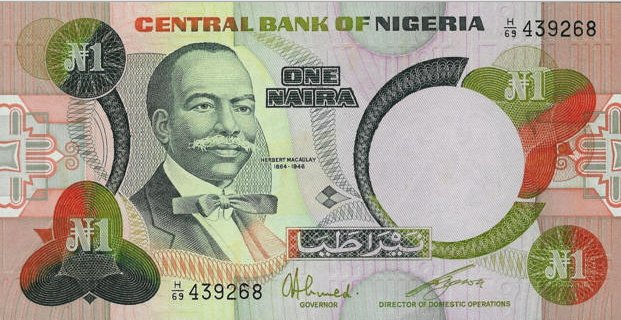
At a meeting in Glover Hall in Lagos on April 11, 1945, it was decided that an NCNC delegation, which included, Azikiwe, the head of the delegation, Mrs. Funmilayo Ransome-Kuti, Prince Adeleke Adedoyin, Dr. A. B. Olorunnimbe, Alhaji Inua Wada, among others, be sent to London to convey the party’s reservations to the proposed constitution.
A tour of the provinces was planned from April 8 to June 5, to raise funds (a total of £13,500), for the proposed trip to London. But it was while Macaulay was on tour in the Northern provinces, in Kano, leading the NCNC delegation that he suffered an acute attack of rheumatism and had to return to Lagos, where he was treated by Dr A.B. Olorunnimbe, his personal physician and political associate in the NCNC. Herbert Macaulay died on May 7, 1946. He was 81. His last words were, “After you have mourned me for a week, continue with the struggle.”
Funeral
12. The Lord Bishop of Lagos, Archbishop Leslie Gordon Vining officiated at Herbert Macaulay’s funeral service held for him on May 11, 1946, at the Cathedral Church of Christ, Marina, after which he was buried at the Ikoyi cemetery.
Huge crowds, estimated between 100,000 and 200,000 turned out in the streets to mourn him and all the markets were shut for two full days. As is customary among the Yoruba, when a distinguished leader dies at an advanced age, his funeral becomes the occasion for a prolonged celebration of a life well-lived and public service well-acclaimed.
Marriage and Family
13. In December 1898, the year he left the civil service, Herbert Macaulay got married to Caroline Pratt, the daughter of an African Superintendent of Police. Unfortunately, the marriage came to an end with Caroline’s sudden death in August 1899.
Macaulay vowed never to remarry but he had mistresses with whom he fathered 16 children. One of whom was Oged (Ogedengbe) Macaulay a member of the Zikist movement; who also took after him with his own militant brand of politics and also lost his eligibility for elective office, when in 1952 as a councillor in the Lagos Town Council, swindled J.M. Jazzar, a Lebanese transport magnate in Lagos, by falsely pretending that he was in a position to influence the councillors of the Lagos Town Council to get him a bus route permit.
Likewise, Prof. Babatunde Kweku Adadevoh, a former Vice-Chancellor of the University of Lagos, was a grandson while his daughter, Dr. Stella Ameyo Adadevoh, Nigeria’s unsung heroine during the Ebola epidemic in 2014, was a great-granddaughter to Macaulay.
14. Some of Macaulay’s friends and political contemporaries were: Dr Henry Carr, the first African Inspector of Education and later, the first African Resident of the Lagos Colony; John Otunba Payne, the first African Registrar of the High Court; Arthur Kirsten, German consul and an accomplished pianist; Dr J.K Randle, Dr C.C. Adeniyi Jones, Dr J.A. Caulcrick, Dr Moses da Rocha, Candido da Rocha, Dr Akinwande Savage, Barrister Eric O. Moore, Egerton Shyngle, Adeyemo Alakija, Bright Wilson, Kitoye Ajasa, and Alimotu Pelewura.
15. Herbert Macaulay was a great socialite and found solace in his political travails in music. He had learned the violin in the United Kingdom even obtaining a certificate in it from the Trinity College of Music in London and was quite good at it.
16. Although a Christian, the son of an Anglican Priest, Reverend Thomas Babington Macaulay, and grandson of an Anglican Bishop, Samuel Ajayi Crowther, Herbert Macaulay practised various forms of black magic and divination. He embraced the Adamu Orisa in Lagos and showed a keen interest in African traditional medicine to “protect” himself and his large family.
17. Many streets and monuments have been named after Macaulay in both Abuja and Lagos. In 1972, a ship Herbert Macaulay of the Nigerian Shipping Line was named after him. The Herbert Macaulay Library in Yaba, Lagos is also named after him. In addition, his portrait was featured on the defunct One Naira note and coin.
We always have more stories to tell, so make sure you are subscribed to our YouTube Channel and have pressed the bell button for interesting historical videos. Don’t hesitate to follow us on all our social media handles and share this article with your friends as well.
You can also get Ayomide Akinbode’s latest historical novels on Amazon, Rovingheights, and Okadabooks.
Sources
LaRay D. (n.d). Herbert Samuel Heelas Macaulay, Founder of Nigerian Nationalism. Political Atlas of the African Diaspora (1900-1989), Article #902.
Oladapo F. (2017). Herbert Heelas Macaulay And His Relevance to The Excellence Of Lagos. Inaugural Herbert Macaulay Gold Lecture, Lagos Country Club, Ikeja, Lagos.
Tamuno, T.N. (1975). Herbert Macaulay, Nigerian Patriot. Heinemann Educational Books Ltd, London.
Thomas, I.B. (1946): Life History of Herbert Macaulay. Tika Tore Press, Lagos. 3rd Edition.
Leave a Reply
You must be logged in to post a comment.


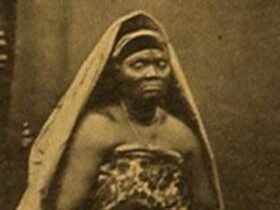
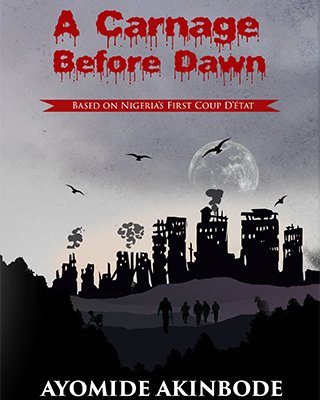
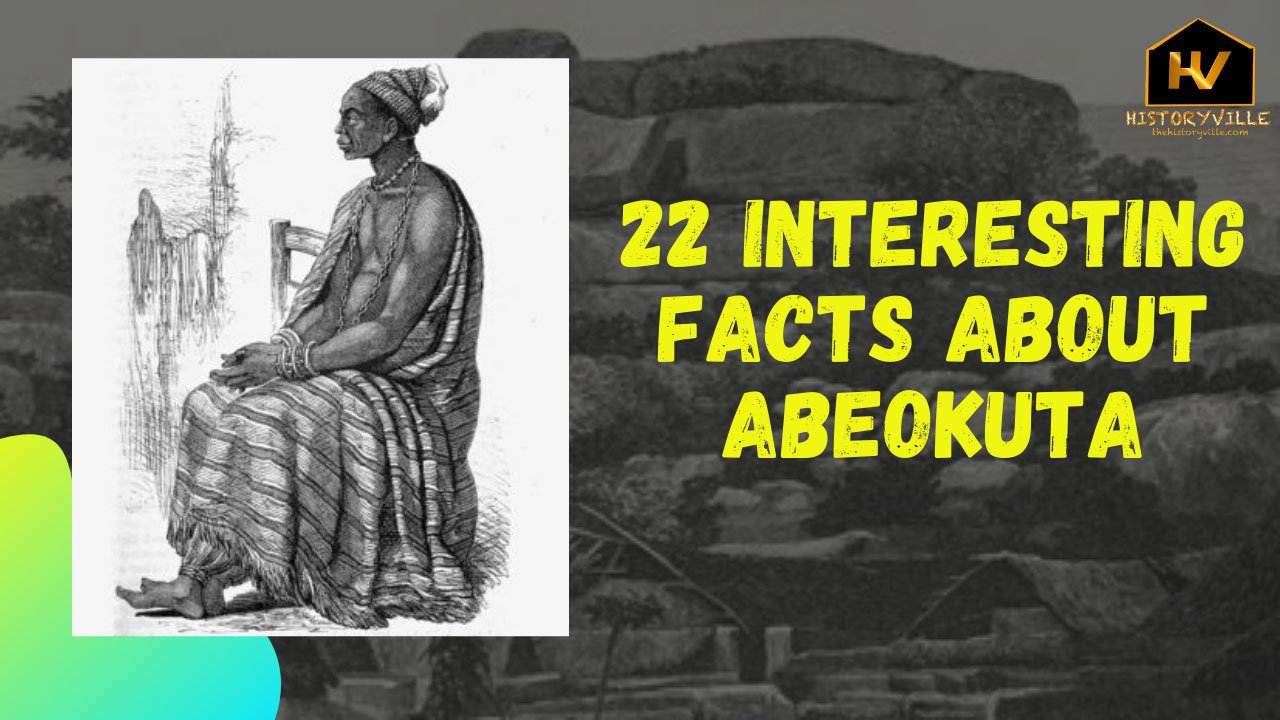
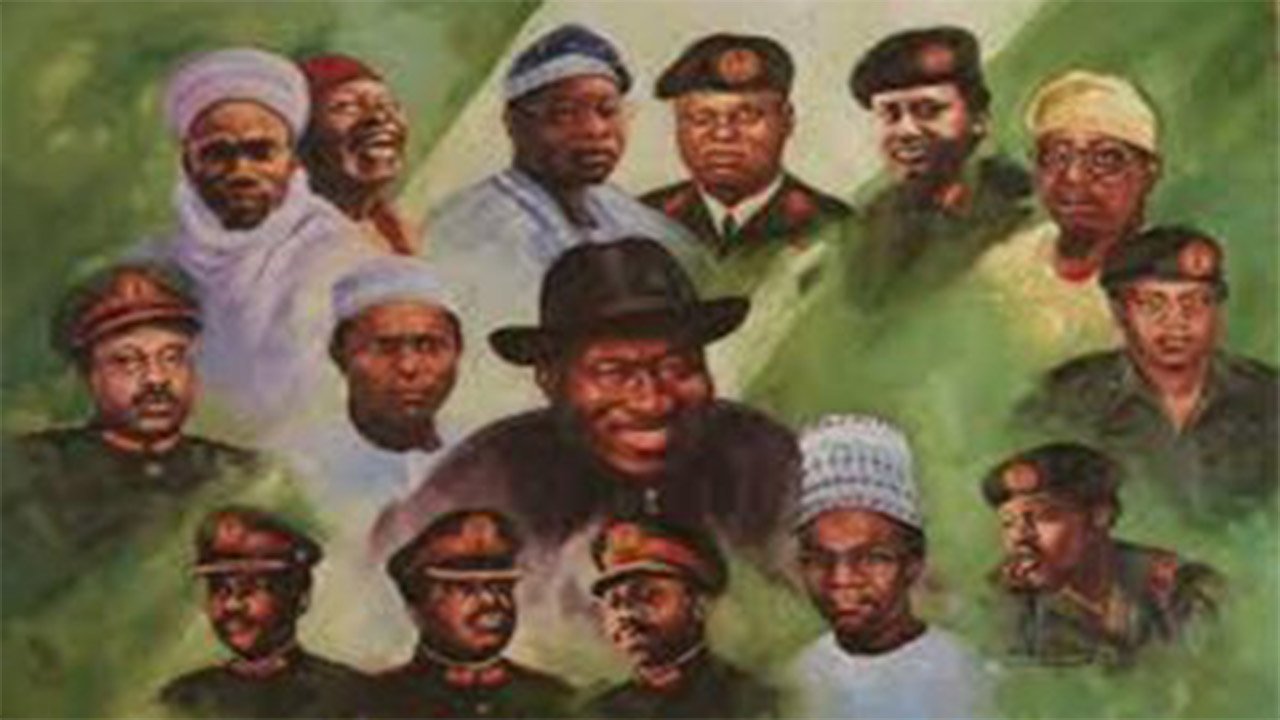


Leave a Reply
View Comments